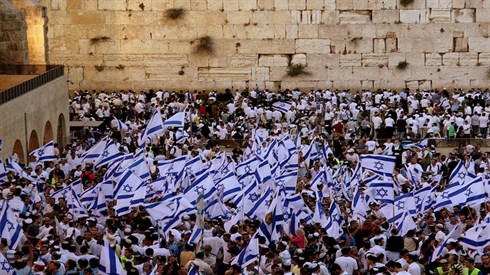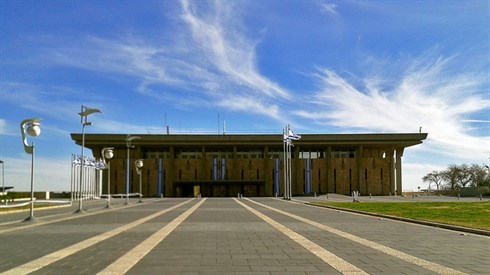2441
Question
1. When walking on wet grass on shabbos, you place you already wet shoe on grass and thereby give some watering to that grass, so why is it permissible to walk on wet grass?
2. If when opening the Succah roof, water will drop onto the lawn, is this permissible on Shabbos and Yom Tov?
Answer
Shalom,
Thank you for your timely questions – may you be blessed with a Chag Semach!
1. When walking on wet grass on Shabbat there is no problem of breaking the Shabbat law that forbids watering the lawn. This is because even though your shoe may well have some moisture on its sole, it is far from certain that your next step will transfer that water to other grass that will benefit from it. Even though it may happen, because it is not a certainty, and it is not one's intention, it is permitted. [In fact it seems to me that rather than beneficially transferring moisture that would break that Shabbat law of "zora'eh", planting and causing to grow, one is much more likely to hurt the grass by squashing it, which is not "zoa'eh" at all!]. This is a general rule on Shabbat, that actions that preformed without an intent to break Shabbat, even though it may bring about a Shabbat labor, as long as it is not certainly going to happen (or close to certainly), it is permitted. For example, one may walk on the grass even though it may perhaps result it uprooting some grass, because one's intent is not to harvest the grass, but rather just walk over the lawn, and it is far from certain that the grass will in fact be uprooted.
2. Opening a Succah roof after the rains when the water from the roof will fall on the garden lawn may well be problematic. Here there is a certainty that the water will fall on the lawn, so even without intent to water the lawn it should be forbidden (this is called a "pesik raysha"). Rav Shimon Eider in his work "Halachos of Shabbos" writes "After a rainfall one should be careful not to throw directly onto the grass, water which has collected on chairs and tables standing outside. Similarly, one may not roll back the covering of a Sukkah after a rainfall, if this will throw water directly onto the grass, which will be beneficial to him for the growth of the grass. If the water will fall onto a board or pavement, even if it will later roll back onto the grass, it is permissible" (page 59). In the footnotes he explains in the name of Rav Moshe Feinstein zt"l, that where the lawn does not need more water, such as after a strong rainfall, one may cause that water to fall directly onto the grass, as this is not beneficial to it's growth. So, in summary, opening a Succah roof after the rain may be allowed in two situations – firstly, if the water will not fall directly onto the grass or plants, but rather fall onto the pavement or boards etc, (even if the water then continues to the grass – as this is secondary action that is allowed). Or, secondly, even if the water will fall directly on the grass, if the lawn is so wet that the additional water will be beneficial to it's growth, it is allowed.
Blessings for a great Chag – p.s. we pray for rain only from Shimini Atzeret, so I hope you have a nice rainless festival!

Zimun and Women
Rabbi Yoel Lieberman | Adar 22, 5772

Do non-Jews or non-Noahides go to heaven?
Rabbi Ari Shvat | Cheshvan 7, 5779

The most complicated question in Halacha?
Rabbi Yoel Lieberman | Elul 13, 5779

Kipa Sruga- The Crocheted Kipa- Where & Why did it start?
Rabbi Ari Shvat | Elul 18, 5780

Gentile inferiority due to genetics.
Rabbi Yoel Lieberman | Adar 6, 5785

Blessing for non jew
Rabbi Yoel Lieberman | Nisan 23, 5785

Follow up to "outdated Mitzvot", Sanhedrin, morality etc.
Rabbi Ari Shvat | Nisan 18, 5785






